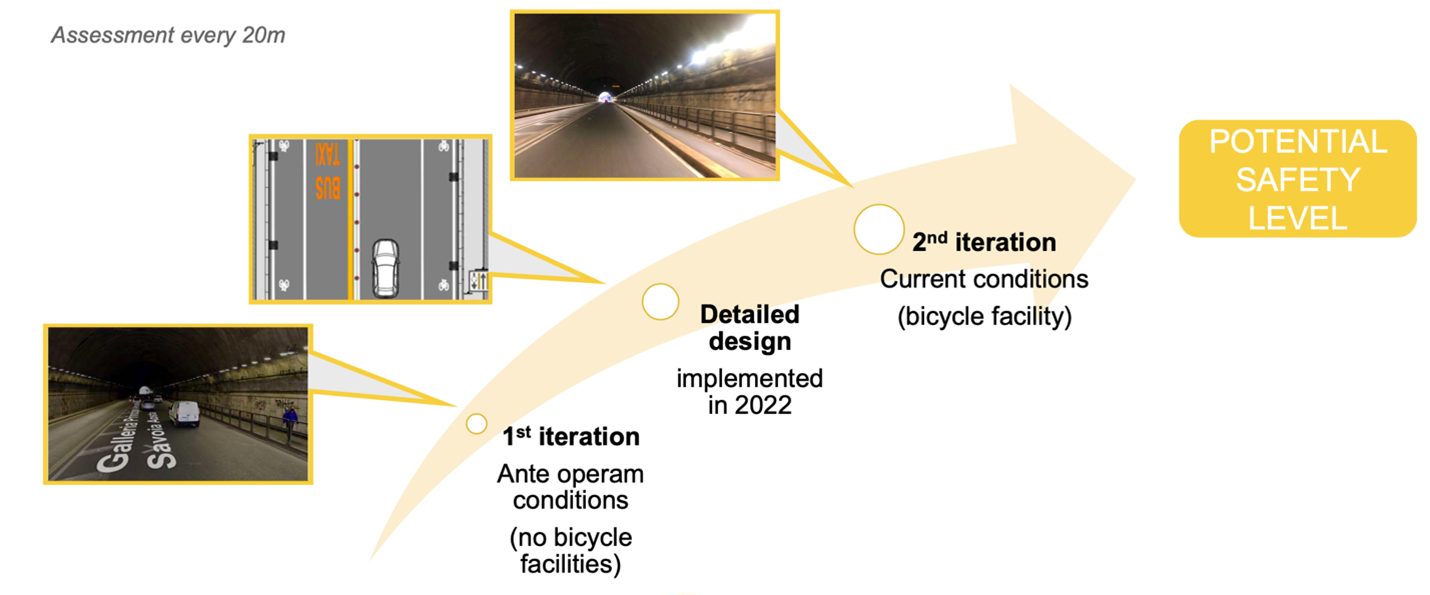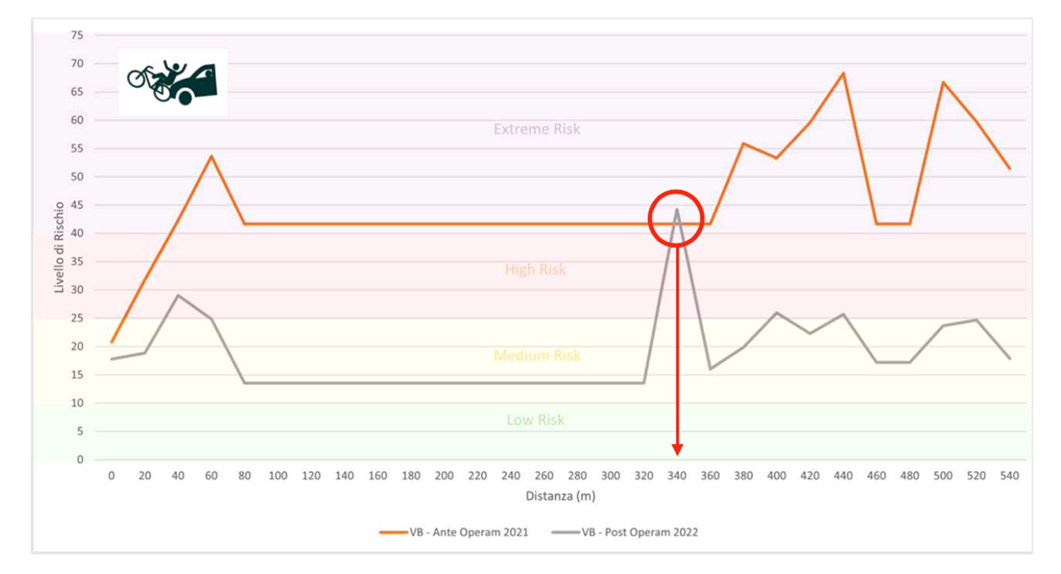A CycleRAP Pilot conducted on new cycling infrastructure in a tunnel on Via di Porta Cavalleggeri in Rome has demonstrated its safety, helping to answer to the discordant opinions of locals.
The tunnel route, used by all, connects two important areas of the historic city centre but had no provisions for bicyclists or micro-mobility users.
The Rome Municipality wanted to ensure the safety of a new bike lane in the mix.
The assessment conducted by FRED Engineering applied the CycleRAP model in three stages of project development: (i) before intervention with no bicycle facilities (ante operam condition), (ii) on the detailed designs, and (iii) after implementation of the bicycle lane facility.

The results proved the interventions are making the route safer for cyclists.
“In the ante operam scenario, the crash risk of bicyclists was “extreme” on 93% of the section, while following the design implementation, their crash risk was drastically reduced, with only one 20-metre segment classified as “extreme” risk, and over 80% of the section classified as “medium” risk,” said Antonino Tripodi, Technical Director at FRED Engineering.

As highlighted on the risk chart above, only one section of the bike lane post-intervention remains dangerous for bicyclists. The line peak refers to a sharp turn introduced due to a necessary deviation of the bike lane.
This highlights an important safety issue to be fixed and the importance of post intervention assessments.
The study developed by FRED Engineering demonstrates the full applicability of the CycleRAP model, expected results, and its capacity for safety analysis to inform interventions.
With an evidence-based methodology like CycleRAP, local authorities can provide quantitative objective indicators of how the level of cyclist safety has changed after implementing cyclist facilities.
In recent years, the city of Rome is beginning to leave more room for cyclists, recognizing the economic importance, efficiency, and sustainability of this largely neglected mode of transportation in the city’s road networks.
The assessment is an important first CycleRAP pilot and guidance for the development of future cycling infrastructure in Rome.
Useful links:
- To see more about the Project, access the presentation here.
- To read more about CycleRAP, click here.
Image credit: FRED Engineering


















